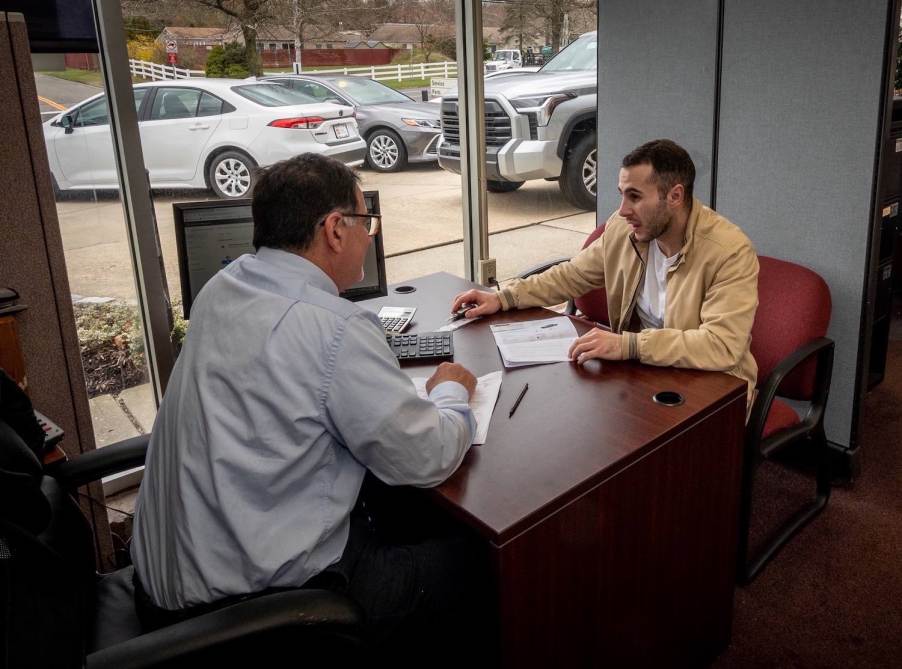
Car Dealers and Lenders Don’t Care if Buyers Default: They Still Make Money
Early car loan payment defaults have spiked recently. These defaults occur within the first six months of the loan origination. Virtually all lenders agree the cause is auto loan fraud by the dealer or buyer. Lending institutions don’t verify the numbers and/or personal information until the defaults begin. But car dealers and lenders are in a terrific position to make money whether buyers repay their loans or default.
How do car dealers and lenders make money on auto loan defaults?
Around 10% of car dealers commit auto loan fraud, with almost 70% of defaults due to buyers submitting fake pay stubs and false personal information. However, lenders also play a significant part. Two state attorneys general claimed Credit Acceptance and the Texas-based Santander Consumer USA committed legal violations regarding their lending practices.
The lending institutions were accused of accepting loans they knew would fail and placing borrowers at precarious financial risk. Attorneys general in Mississippi and Massachusetts alleged these lenders “squeeze[d] as much money from delinquent borrowers as possible,” according to Consumer Reports. In each state’s case against the lenders, they settled in court without admitting any wrongdoing.
Why do some car dealers and lenders charge so much interest?

In cases involving settlements, evidence showed lenders and dealers worked together, marking up specific cars that low-income borrowers could afford. Other times, they pushed borrowers into more expensive vehicles with monthly payments higher than the consumers could handle. Yet another scenario involved paying dealers less in fees for subprime borrowers. Those are only a few ways these car dealers and lenders guaranteed a profitable outcome for themselves.
The typical methods that unscrupulous lenders use are high-interest rates and long-term loans. In some cases, 84- and 96-month loans are ways to keep payments lower. If the borrower defaults, the lender can repossess and resell the car or garnish the person’s wages and tax refunds. That happens regularly in an industry with extensive regulation.
Credit scores are readily available, so less ethical companies can easily identify subprime borrowers more vulnerable to high-interest, long-term loans. “Subprime” refers to a credit score under 650. The industry median interest rate for subprime car loans is 15%. Financing through a bank or credit union is around 10%.
How much can a lender make from early loan defaults?

Offering loans to subprime borrowers poses risks for lenders. So charging higher interest rates is fair. But according to Massachusetts Attorney General Maura Healey, lenders between 2013 and 2019 made $3,100 on average after six months on defaulted loans in the state.
Some lenders try to work with consumers who fall behind. Modifying the loan terms or deferring payments are two solutions. But some lending institutions pour more resources into collecting and servicing loans than originating them.
A Mississippi lawsuit alleged nearly 50% of Credit Acceptance employees handled loan servicing and collection but only 28% originated loans. The suit also claimed 35% of the loans ended in repossession. According to Consumer Reports, Ford Credit, the automaker’s financing arm, reports only 1% of its loans end in repossession.



